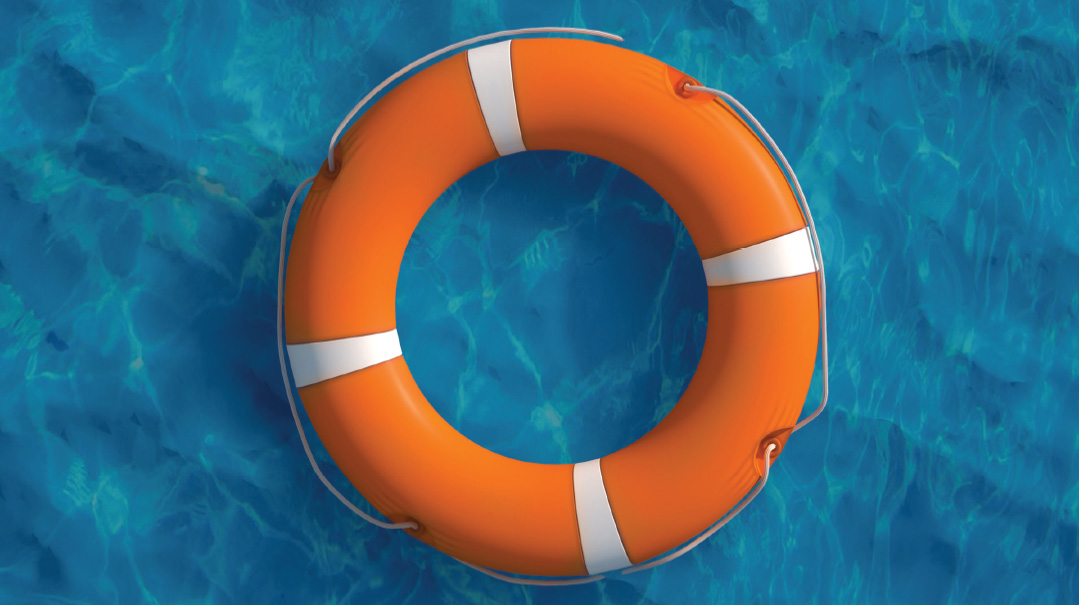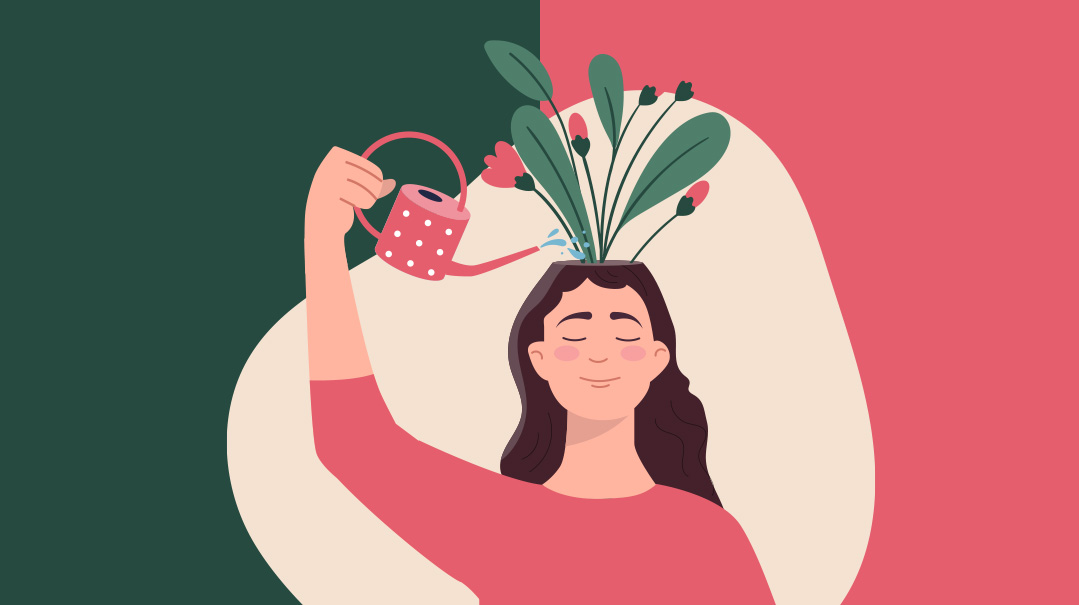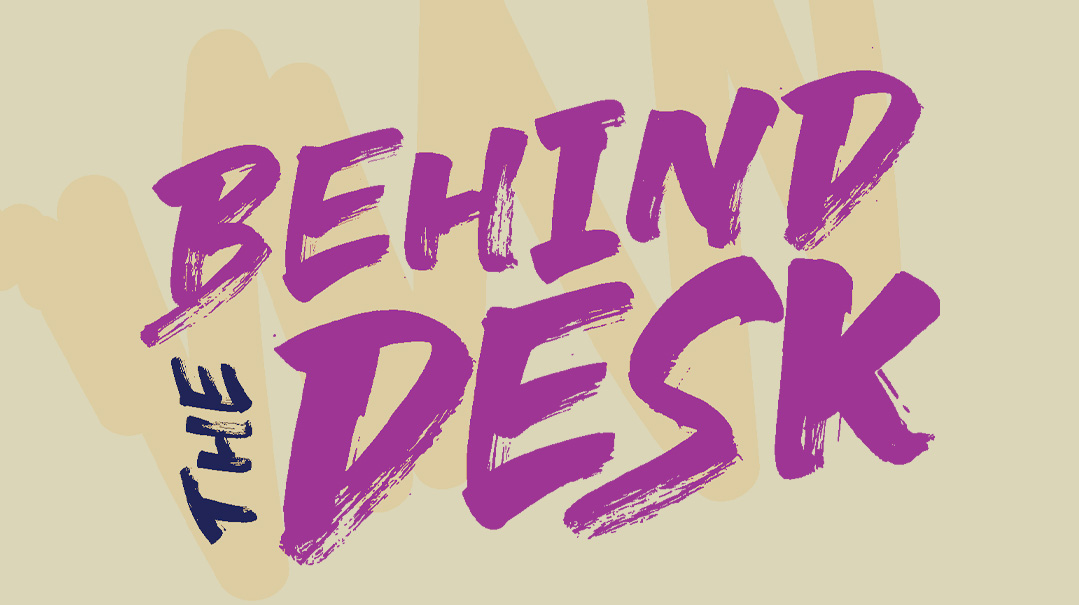Taking The Plunge

Many teenagers think of lifeguarding as a good summer job or as a way to attend summer camp without paying exorbitant fees. Ayala Colter’s* story shines a different light on the vital importance of proper lifeguarding, water safety, and expertise in CPR

It was an opportunity too good to miss. Ayala’s high school offered the option of taking a lifeguarding class for gym, and Ayala grabbed it with both hands. To her surprise, she found the class challenging, and the teacher a real stickler for details. Did she really have to worry about every single part of the training? Apparently, she did. If a girl didn’t have every detail down pat, including every stroke, every level of endurance, and complete knowledge of CPR, Mrs. Goldsmith wouldn’t let her pass. Determined, Ayala soldiered on, even putting in extra time between classes just to be sure. At last, after a lot of grit and hard work, she received her certification, along with a tremendous sense of accomplishment.
A few weeks later, Ayala’s family flew off to Orlando, Florida on the Sunday of midwinter break. Renting an Airbnb, they enjoyed a wonderful vacation in a beautiful resort… until Thursday afternoon. Thursday was their last day before going home, and they were enjoying the balmy weather. Ayala and her mother were in the game room playing a lively game of air hockey when the relaxed atmosphere was suddenly shattered by Mr. Colter’s piercing screams.
Dropping the pushers, Ayala and her mother dashed outside.
“Chaya* fell into the pool!” Mr. Colter yelled, holding Chaya in his arms. “I had to jump in to get her out. She’s not breathing!”
Mrs. Colter grabbed four-year-old Chaya from her husband and laid her on the ground. “Ayala,” her mother yelled, “CPR!”
Ayala rushed toward her sister and gasped, heart pounding in terror. Chaya was blue, she had no pulse, and her eyes had rolled back in her head. Immediately, Ayala went into CPR mode, performing rhythmic compressions and breaths. In time, there was a good sign — liquid started oozing out of Chaya’s nose.
“Speed up the breaths!” her father urged, between yelling, “Help! We need help!”
Terror and overwhelm threatened to drag Ayala down, but she refused to succumb to her turbulent emotions. This is my sister! Shoving fear to the side, she kept pushing, kept breathing into her sister’s mouth. In, out, in, out. Adrenaline fueled her, and she did one compression after another, blew a breath, then repeated the sequence, again and again….
Mrs. Colter tried calling for help, but to her horror, she didn’t have reception.
“Breathe, Chaya, breathe,” she begged, watching one daughter work to save another daughter’s life.
Once Chaya began responding, Mrs. Colter raced to her neighbor to call 911. Terrified, she began sharing the story with the dispatcher.
“Slow down, Ma’am,” the dispatcher said, “say that again.”
Is she for real?
Mrs. Colter shook her head. She couldn’t deal with the dispatcher’s cavalier attitude and tossed the phone to her neighbor.
“Please,” Mrs. Colter said. “Talk for me.”
Rushing back to Ayala and Chaya, Mrs. Colter heard Chaya starting to make noises.
Meanwhile, Mr. Colter was still yelling for help, and Ayala’s brother was running from house to house trying to get someone — anyone — to come. One neighbor rushed over with his adult daughter and immediately took over from Ayala, expertly performing breaths and compressions.
“She has a pulse!” he called.
It was only later that they discovered that this neighbor was a doctor. But there was more to the story. He had plans to be in Tampa that day, but for some reason, his plans changed, and he wound up staying in Orlando. This would be his last day there as he was traveling back to Serbia the following day. Incredibly, Hashem had stationed him exactly where he needed to be to help save Chaya’s life. He and Ayala alternated doing CPR until the paramedics arrived, a very long 15 minutes later.
“Put warm water on her face,” the doctor instructed.
While he worked on Chaya, his daughter thrust Shevy, Chaya’s twin sister, at Ayala. Shevy was hysterical, completely traumatized by the scene playing out in front of her.
“She needs you,” the doctor’s daughter explained. “She’s having a really hard time.”
Taking hold of her sobbing little sister, Ayala took a deep breath and hugged Shevy close.
“Please be okay, Chaya,” she whispered.
By this time, all the neighbors had gathered and there was total chaos.
“Where is EMS already?” they groused. “Why are they taking so long?”
And suddenly, Chaya bit the doctor’s lip.
“She’s okay!” he exulted. “She’s okay.”
When EMS finally came, they stabilized Chaya by giving her oxygen and doing an EEG. And then came the clincher.
“She needs to be airlifted,” they told the Colters.
Airlifted? The word sounded ominous, and Ayala exchanged a fearful look with her parents. The idea of her little sister being whisked off into the sky added more fear to the already terrifying drama. But there was no time to feel, and the Colters had to keep moving. Climbing into the ambulance, the medics drove them out of the resort to the highway, where a police car blocked off a section of the highway so the helicopter could land.
When the helicopter medics were ready to take Chaya, Mrs. Colter said she would accompany her.
“You can’t come,” they said. “It will make the copter too heavy.”
“Then I’m not letting her go!” Mrs. Colter exclaimed.
The medics became agitated. “Then you have to sign a release that you’re going against medical advice,” they insisted, their voices strident.
“I need you to speak to me respectfully and calmly,” Mrs. Colter demanded. “I’ve just been through a trauma, and you must speak to me in a quiet voice.” That got their attention. “Now,” Mrs. Colter continued, “I have one question. Are you transporting her because it’s protocol or because she really needs it?”
“Both,” they answered. “It’s protocol, but she could also experience secondary drowning known as ARDS [acute respiratory distress syndrome]. That’s why we need to get her to the hospital as soon as possible.
“Okay,” Mrs. Colter agreed, wiping her tears. “Take her.”
“I’ll be in touch with you as soon as we land,” the medic promised.
As the Colters watched the copter lift off, a feeling of helplessness squeezed their hearts. Will she be okay? Please, Hashem….
Mrs. Colter and Ayala didn’t feel able to daven. Their hearts were towering glaciers, frozen and immobile. But they desperately wanted tefillos. Reaching for their phones, they decided to reach out to close family and a few friends and begged them to daven. After making those few calls, relief washed over them. People who loved them were storming the heavens. It felt so comforting and reassuring.
“Now what?” Mrs. Colter asked. They were standing in the middle of the highway, watching the helicopter flying off into the clouds.
“Go home,” the medics said. “The police officer will take you to the hospital.”
“No, I won’t,” the police officer said. “I don’t have orders to take anyone to the hospital.”
Will this nightmare ever end? Mrs. Colter shook her head and quickly called her husband. The chief of police was still with him at their Airbnb, and she asked the chief to give orders for the policeman to drive her to the hospital. By the time he agreed and gave the orders, she was back at the Airbnb.
The Colter children were having a very hard time dealing with the situation. Mrs. Colter decided to stay with them, and Mr. Colter would go to the hospital. So the police officer drove Mr. Colter to the hospital, an hour away, while Mrs. Colter stayed home with the children.
As promised, the helicopter medic called Mrs. Colter once they arrived at the hospital.
“They’re taking her for imaging and will be in touch with the results,” he said.
A little while later, the nurse called with a report.
“Chaya has fluid in her lungs, but nothing looks severe,” the nurse said.
She was breathing regularly, and they planned to monitor her for four hours. At that point, Mr. Colter walked into Chaya’s room, incredibly relieved to hear that Chaya was improving.
Suddenly, Mrs. Colter remembered that they had flights to leave Orlando the next day. I need to pack everything and get ready for a trip. But how? Looking around, she was uncertain how to take care of everything. The children were still crying, afraid to go to sleep, and Ayala was shaky and needed support. Mrs. Colter reached for the phone.
“Can you come over and stay with Ayala?” she asked Ayala’s friend.
It was still a chaotic scene. The police were in their Airbnb, calling it a crime scene, and their non-Jewish neighbors in the resort who had seen what was going on kept coming over with gifts and best wishes.
By ten that night, the hospital was trying to determine if the fluid in Chaya’s lungs was increasing, decreasing, or staying the same. Her oxygen started dipping a little, and they decided to admit her. Mrs. Colter drove to the hospital with food and clothing for her husband and Chaya. To everyone’s delight, Chaya kept asking for food! But unfortunately, her oxygen levels were going down in spite of the oxygen she was getting.
Ayala’s parents were faced with a dilemma.
Do we stay? Do we go home?
“If we stay,” they said, “we need a different house. There’s too much trauma in the house where we stayed.” Turning to the doctor, they asked, “What do you think?”
“The next 24 hours are critical,” he said. “There can be secondary drowning, or she could turn a corner. We just don’t know.”
There was no choice. They would have to stay in Orlando for Shabbos. After all the upheaval, the details were especially hard to arrange. They had to book another Airbnb, get situated, arrange food for Shabbos, and change their flights.
It was a long night, and no one in the Colter family slept much. Every hour, the children kept texting to find out about Chaya, and Mrs. Colter tried to reassure them. She’s okay, she responded. She’s okay.
At about three thirty in the morning, Chaya pulled out her oxygen tube. She hated the oxygen! Naturally, the tech wanted to put it back in. But Mrs. Colter refused. “She’s stable,” Mrs. Colter said, relieved to see that Chaya’s numbers had gone up. “Let’s leave it for now.”
The tech relented, and Mrs. Colter breathed a sigh of relief. Her thoughts swirled in so many directions. With a start, she realized that Chaya’s oxygen levels had dipped just before close family friends had gone to the Kosel and davened for two straight hours, begging for rachamim! Chaya had been on a downward spiral, but their dear friends had grasped the power of tefillah, the strength of Klal Yisrael. By the time they finished davening, her numbers had miraculously gone up.
Suddenly, Chaya’s oxygen levels went down again. Mrs. Colter replaced the oxygen for five minutes, and as soon as she saw the numbers increasing, she took it out.
“We need to observe her for 12 hours once she’s off the oxygen,” the nurse said.
Mrs. Colter did the math. Twelve hours meant that the earliest they would get discharged would be at three thirty in the afternoon on Erev Shabbos.
As Shabbos loomed, so did their food issues. What would their family eat for Shabbos? Desperate, Mrs. Colter sent out a post to her WhatsApp contacts.
“If anyone is coming from Miami to Orlando for Shabbos, we need food.”
In yet another stroke of Hashgachah, someone responded, an acquaintance Mrs. Colter only knew marginally. She was coming to Orlando for a Shabbaton and would arrive at her hotel at four thirty. Thank You, Hashem!
The next day, Chaya was discharged at four, and the race began. She and her mother arrived at the woman’s hotel at four thirty, picked up the food, and called an Uber. Twenty minutes later, they slid into the Uber, arriving at their new Airbnb just moments before candlelighting.
With tears in their eyes, they all watched Chaya run around, completely back to herself.
Reflecting on the miracle of Chaya’s survival, Ayala is struck by several powerful messages.
“Everyone should train in CPR,” she says, “not just adults, but teenagers, too. You can save a life! People think CPR is an annoying course that they’ll never really need. But you never know! I never dreamed I would need to use what I learned, especially so soon. I practiced a lot and got the skills, and then Chaya drowned!”
Ayala’s eyes glitter, and she pauses to compose herself.
“From the time Chaya drowned and came back to us, we saw miracles. It started with that doctor who was not supposed to be around. He was on his way back to Serbia, and was supposed to be in Tampa, but Hashem kept him nearby. Next, I saw the importance of tefillah and the power of davening for others. Third, Chaya not only came back to us, but had no brain damage after so much time without oxygen. We have no words to properly thank Hashem.”
Mrs. Colter agrees with Ayala wholeheartedly, adding that their family is always very vigilant around water.
“Chaya must have accidently fallen in, because she was afraid of the water and never wanted to go into the pool. And even though my husband was watching and there were three children in the pool, no one noticed! Drowning is silent.”
After a meaningful pause, Mrs. Colter continues.
“You can be so careful, but you can only control so much. Hashem obviously wanted this wake-up call to happen.”
“Most of all, we are so grateful that Chaya is fine,” Ayala says. “It’s a miracle that she’s completely well. And I’m so grateful that I was around and knew what to do to help her. Thank you, Mrs. Goldsmith.”
*Names have been changed.
Mrs. Shiri Goldsmith, Certified Lifeguard, and Water Safety and CPR Instructor, Speaks:
Serious Business
When Ayala called Mrs. Goldsmith to share her story and ask her to daven for Chaya, they were both overcome by emotion. Gratitude and fear mingled inside them as they cried together, determined to daven for Chaya’s full recovery. Days later, when Hashem answered their tefillos with Chaya in good health, their hearts overflowed with appreciation.
Shiri* became a lifeguard when she was 15. Growing up in Atlanta, she was part of the first girls-only lifeguarding class. It took a lot of hard work and dedication to get certified, but Shiri was determined. She loved swimming and wanted to land a good summer job by being able to be a lifeguard and teach others to swim.
“I had to wake up at five in the morning on Sundays because that was the only time the JCC would allow the girls-only class to use the pool,” Shiri remembers. “But we had a great teacher. She worked hard to give us the skills we needed.”
Twenty years ago, safety legislation was not as strict as it is today. During her first two months as a lifeguard, Shiri was the only lifeguard watching a large group of children in the JCC pool. Suddenly, someone pushed a child who couldn’t swim underwater.
“All protocol flew out of my mind,” Shiri remembers, “and I just reacted. Technically, I was supposed to blow the whistle and tell everyone to get out of the pool. Instead, I simply jumped into the pool, grabbed the girl, and carried her out of the water. At first, she wasn’t breathing. After one or two cycles of CPR, she began to breathe.”
After that episode, Shiri did not want to be the only lifeguard at a pool ever again. But this story motivated her to get more involved in aquatics, teaching people to swim, and advocating for water safety. Tragically, most drownings happen when people don’t know how to swim. And Shiri wanted to change that.
Lifeguarding is a serious business. It is necessary to get recertified every two years.
Over the years, Shiri has encountered good lifeguards and some who aren’t so good. Unfortunately, the ones who are not well-equipped have to live with themselves and the repercussions of a scenario that could potentially end in tragedy. In her experience working in different communities and in various camps, she sees the pitfalls in the system. Sometimes, too many people are put in classes at a time. Other times, instructors try to cram the information into narrow time slots. There are limited options available in camps and bungalow colonies due to inadequate resources and a small number of women who can do the job. For all these reasons, Shiri became highly motivated to see what she could do to remedy the situation. When a lifeguard passes her course, she will be fully qualified.
What is involved in becoming a certified lifeguard?
A lifeguarding course requires 30 hours of instruction. A lifeguard must be able to swim 300 meters or 12 straight laps in a full-length pool. She must be able to retrieve a ten-pound object from the deep end and swim across the pool holding it on her back, and she must be able to tread water for two consecutive minutes.
“Many lifeguard students say they’ll be great,” Shiri says, “but they can’t put their faces in the water, or they don’t know how to breathe properly when swimming. While their argument, ‘How often will I be involved in carrying a 200-pound person out of the water’ is true, I still can’t pass someone unless she has mastered those skills, no matter how much they or their parents beg and complain.”
A lifeguard must be able to save a victim from the deepest part of the pool and get the person out of the water in less than a minute and a half. Doing a perfect rescue is not enough; she must be fast enough. When a person has drowned, every minute is precious and can spell the difference between life and death or permanent brain damage.
A lifeguard is also required to pass a CPR and first aid test — both a written exam and a skill test performed on a mannequin. A lot of information and memorization is required to pass these sections. Students get two tries to get through these tests perfectly without any critical errors.
When someone has a heart attack and goes into cardiac arrest, approximately 90 percent of victims don’t survive, or sustain long-lasting brain damage. But when CPR is administered, there is closer to a 50 percent survival rate.
“I cannot stress the importance of everyone knowing CPR. Every parent, educator, and babysitter should be trained. Especially in a city without Hatzolah, it is crucial for caregivers to know CPR. It is unfortunately very common that 911 takes too long to respond to critical situations.”
To improve water safety for Klal Yisrael, Shiri started her own swimming business to help train lifeguards, and to train parents and educators in CPR and first aid. She also offers swimming lessons to people who would otherwise not have the opportunity to learn to swim.
Thinking about Ayala’s story, Shiri concludes, “This is why I do what I do. To save a life is to save a world.”
(Originally featured in Teen Pages., Issue 967)
Oops! We could not locate your form.







